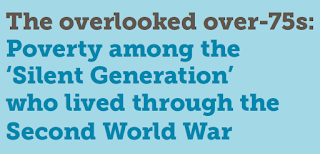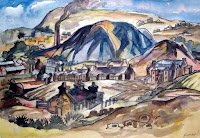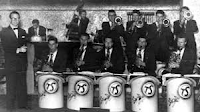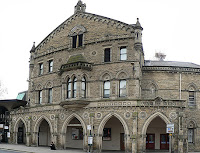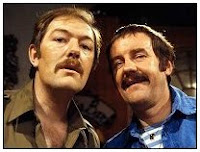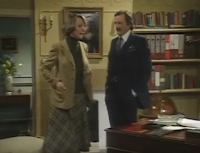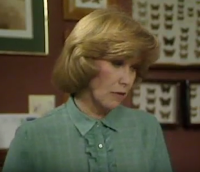.jpg) Page views : 1771
Page views : 1771Ken, who will be 80 years old in a few weeks and who has been making films for over 50 years, noted for their social realism and driven by his left-wing views, has seen them denied the accolades in Britain which they have been granted in Europe.
He was 28 when he made ten BBC' 'Wednesday Plays', including the docudrama 'Up the Junction' in 1965, recounting the experiences of three young women in North Battersea and Clapham Junction, one of whom was pregnant at a time when abortion was illegal. It caused a major uproar in Britain due to its rough language, racist characters, graphic depictions of sexual promiscuity and a harrowing abortion scene. https://www.youtube.com/watch?v=qzfoBN07JXI&t=35m15s
 The following year his 'Cathy Come Home', for the BBC, dealt with the issues of homelessness, unemployment and the working of social services and saw his film have such a massive impact that it led directly to a change in the Homeless Laws. https://www.youtube.com/watch?v=iQJVZI_UF4Y
The following year his 'Cathy Come Home', for the BBC, dealt with the issues of homelessness, unemployment and the working of social services and saw his film have such a massive impact that it led directly to a change in the Homeless Laws. https://www.youtube.com/watch?v=iQJVZI_UF4Y
In 1967, for the cinema, directed 'Poor Cow' about a young woman who married and had a child with an abusive thief who quickly ended up in prison and left alone, took up with his mate, another thief, who seemed to give her some happiness, but who also ended up in the nick. She then took up with a series of seedy types who offered nothing but momentary pleasure until her son went missing and she briefly came to grips with what was most important to her.
alone, took up with his mate, another thief, who seemed to give her some happiness, but who also ended up in the nick. She then took up with a series of seedy types who offered nothing but momentary pleasure until her son went missing and she briefly came to grips with what was most important to her.
https://www.youtube.com/watch?v=dwjZhaWTtbA&t=0m44s
 Also in 1967 made 'Kes' , the story of a troubled boy and his kestrel and saw it listed as Number 7 by the British Institute in the list of 'Best British films of the Twentieth Century'
Also in 1967 made 'Kes' , the story of a troubled boy and his kestrel and saw it listed as Number 7 by the British Institute in the list of 'Best British films of the Twentieth Century'
https://www.youtube.com/watch?v=RoF-UrCVaCg&t=1hr09m19s and his 1967 documentary, 'The Save the Children Fund Film', so disliked by the charity that it attempted to have the negative destroyed and only saw it screened in public in 2011.
In 1981 and was commissioned by Channel 4 to make 'A Question of Leadership', a documentary series on the response of the British Trades Union Movement to the challenge posed by the policies of Margaret Thatcher's Government and concluded that the decision not to screen the programme was 'politically motivated'.

Four years later saw his 'Which Side Are You On?' about the songs and poems of the 1984-85 Miners' Strike commissioned by ITV's, 'The South Bank Show', also withdrawn from transmission, only to see it broadcast after it won a major prize at the Berlin International Film Festival. https://www.youtube.com/watch?v=YzFXE961Hwc&t=3m50s
 In 1991 saw his 'Riff Raff'', which won the 'Felix Award for Best European Film', receive less acclaim in the USA where it was shown with subtitles because of its English dialect and at the age of 69 in 2006, won the 'Palme d'Or' at Cannes for 'The Wind that Shakes the Barley' https://www.youtube.com/watch?v=QzqHEFHWYy4&t=1h26m00s , about the Irish War of Independence against the British during the 1920s.
In 1991 saw his 'Riff Raff'', which won the 'Felix Award for Best European Film', receive less acclaim in the USA where it was shown with subtitles because of its English dialect and at the age of 69 in 2006, won the 'Palme d'Or' at Cannes for 'The Wind that Shakes the Barley' https://www.youtube.com/watch?v=QzqHEFHWYy4&t=1h26m00s , about the Irish War of Independence against the British during the 1920s.
Three years later in 2009, saw his 'Looking for Eric', which featured a depressed postman's conversations with the ex-Manchester United football star, Eric Cantona, played by himself, fail to get wide release and only make £12,000 profit, despite receiving critical acclaim.
 In 2011, released 'Route Irish', an examination of private contractors working in the Iraqi occupation and 'The Angel's Share' about a young Scottish troublemaker, given one final opportunity to stay out of jail receive the 'Jury Prize' at the Cannes and in 2012, 'Jimmy's Hall' selected to compete for the Palme d'Or in Festival and of which Jonathan Romney in the Guardian described as finding : 'the director in lyrical, but typically angry, form' with its true story of an Irishman of Jimmy Gralton who was deported from his own country without trial in 1933. His crime – to have set up a public hall in County Leitrim, a venue for education, community events and musical shindigs both traditional and featuring the jazz that Gralton had brought back from America.
In 2011, released 'Route Irish', an examination of private contractors working in the Iraqi occupation and 'The Angel's Share' about a young Scottish troublemaker, given one final opportunity to stay out of jail receive the 'Jury Prize' at the Cannes and in 2012, 'Jimmy's Hall' selected to compete for the Palme d'Or in Festival and of which Jonathan Romney in the Guardian described as finding : 'the director in lyrical, but typically angry, form' with its true story of an Irishman of Jimmy Gralton who was deported from his own country without trial in 1933. His crime – to have set up a public hall in County Leitrim, a venue for education, community events and musical shindigs both traditional and featuring the jazz that Gralton had brought back from America.
https://www.youtube.com/watch?v=aBjXEPKcR_g&t=0m13s
 Now Ken has won the Palme d'Or at the Cannes Film Festival for 'I, Daniel Blake,' which stars stand-up comedian Dave Johns in the title role and was written by his long-time collaborator, Paul Laverty. It documents what happened when an older man living in Newcastle had a heart attack; can no longer do his job; was declared fit for work; had his benefits stopped and began to go hungry; met single mother of two Katie, who had moved to Newcastle from London, 300 miles away and being re-housed with her children, was also a victim of welfare bureaucracy.
Now Ken has won the Palme d'Or at the Cannes Film Festival for 'I, Daniel Blake,' which stars stand-up comedian Dave Johns in the title role and was written by his long-time collaborator, Paul Laverty. It documents what happened when an older man living in Newcastle had a heart attack; can no longer do his job; was declared fit for work; had his benefits stopped and began to go hungry; met single mother of two Katie, who had moved to Newcastle from London, 300 miles away and being re-housed with her children, was also a victim of welfare bureaucracy.
https://www.youtube.com/watch?v=zZ-rBLtP1Ow
The Cannes judges praised the actors' depictions of the characters who "find themselves in no-man's land, caught on the barbed wire of welfare bureaucracy as played out against the rhetoric of 'striver and skiver' in modern day Britain".

Paul Laverty researched jobcentres, benefit sanctions and food banks to create the story of Daniel, the joiner and on Monday, speaking to BBC Radio 4's Today programme, Ken himself said: "If you get out among the people who are in the food banks, who would not eat unless there were people providing charity, I think you'd find there's a great disgust and despair that we live like that in this country now."
Ken said : "There is a conscious cruelty in the way we're organising our lives now, where the most vulnerable people are told that their poverty is their own fault. If you have no work, it's your fault you haven't got a job." Back in November he told the Guardian : “The present system is one of conscious cruelty. It bears down on those least able to bear it. The bureaucratic inefficiency is vindictive and hunger is being used as a weapon. People are being forced to look for work that doesn’t exist.”
Ken has said : "A movie isn't a political movement, a party or even an article. It's just a film. At best it can add its voice to public outrage"
He was 28 when he made ten BBC' 'Wednesday Plays', including the docudrama 'Up the Junction' in 1965, recounting the experiences of three young women in North Battersea and Clapham Junction, one of whom was pregnant at a time when abortion was illegal. It caused a major uproar in Britain due to its rough language, racist characters, graphic depictions of sexual promiscuity and a harrowing abortion scene. https://www.youtube.com/watch?v=qzfoBN07JXI&t=35m15s
 The following year his 'Cathy Come Home', for the BBC, dealt with the issues of homelessness, unemployment and the working of social services and saw his film have such a massive impact that it led directly to a change in the Homeless Laws. https://www.youtube.com/watch?v=iQJVZI_UF4Y
The following year his 'Cathy Come Home', for the BBC, dealt with the issues of homelessness, unemployment and the working of social services and saw his film have such a massive impact that it led directly to a change in the Homeless Laws. https://www.youtube.com/watch?v=iQJVZI_UF4YIn 1967, for the cinema, directed 'Poor Cow' about a young woman who married and had a child with an abusive thief who quickly ended up in prison and left
 alone, took up with his mate, another thief, who seemed to give her some happiness, but who also ended up in the nick. She then took up with a series of seedy types who offered nothing but momentary pleasure until her son went missing and she briefly came to grips with what was most important to her.
alone, took up with his mate, another thief, who seemed to give her some happiness, but who also ended up in the nick. She then took up with a series of seedy types who offered nothing but momentary pleasure until her son went missing and she briefly came to grips with what was most important to her. https://www.youtube.com/watch?v=dwjZhaWTtbA&t=0m44s
 Also in 1967 made 'Kes' , the story of a troubled boy and his kestrel and saw it listed as Number 7 by the British Institute in the list of 'Best British films of the Twentieth Century'
Also in 1967 made 'Kes' , the story of a troubled boy and his kestrel and saw it listed as Number 7 by the British Institute in the list of 'Best British films of the Twentieth Century' https://www.youtube.com/watch?v=RoF-UrCVaCg&t=1hr09m19s and his 1967 documentary, 'The Save the Children Fund Film', so disliked by the charity that it attempted to have the negative destroyed and only saw it screened in public in 2011.
In 1981 and was commissioned by Channel 4 to make 'A Question of Leadership', a documentary series on the response of the British Trades Union Movement to the challenge posed by the policies of Margaret Thatcher's Government and concluded that the decision not to screen the programme was 'politically motivated'.

Four years later saw his 'Which Side Are You On?' about the songs and poems of the 1984-85 Miners' Strike commissioned by ITV's, 'The South Bank Show', also withdrawn from transmission, only to see it broadcast after it won a major prize at the Berlin International Film Festival. https://www.youtube.com/watch?v=YzFXE961Hwc&t=3m50s
 In 1991 saw his 'Riff Raff'', which won the 'Felix Award for Best European Film', receive less acclaim in the USA where it was shown with subtitles because of its English dialect and at the age of 69 in 2006, won the 'Palme d'Or' at Cannes for 'The Wind that Shakes the Barley' https://www.youtube.com/watch?v=QzqHEFHWYy4&t=1h26m00s , about the Irish War of Independence against the British during the 1920s.
In 1991 saw his 'Riff Raff'', which won the 'Felix Award for Best European Film', receive less acclaim in the USA where it was shown with subtitles because of its English dialect and at the age of 69 in 2006, won the 'Palme d'Or' at Cannes for 'The Wind that Shakes the Barley' https://www.youtube.com/watch?v=QzqHEFHWYy4&t=1h26m00s , about the Irish War of Independence against the British during the 1920s. Three years later in 2009, saw his 'Looking for Eric', which featured a depressed postman's conversations with the ex-Manchester United football star, Eric Cantona, played by himself, fail to get wide release and only make £12,000 profit, despite receiving critical acclaim.
 In 2011, released 'Route Irish', an examination of private contractors working in the Iraqi occupation and 'The Angel's Share' about a young Scottish troublemaker, given one final opportunity to stay out of jail receive the 'Jury Prize' at the Cannes and in 2012, 'Jimmy's Hall' selected to compete for the Palme d'Or in Festival and of which Jonathan Romney in the Guardian described as finding : 'the director in lyrical, but typically angry, form' with its true story of an Irishman of Jimmy Gralton who was deported from his own country without trial in 1933. His crime – to have set up a public hall in County Leitrim, a venue for education, community events and musical shindigs both traditional and featuring the jazz that Gralton had brought back from America.
In 2011, released 'Route Irish', an examination of private contractors working in the Iraqi occupation and 'The Angel's Share' about a young Scottish troublemaker, given one final opportunity to stay out of jail receive the 'Jury Prize' at the Cannes and in 2012, 'Jimmy's Hall' selected to compete for the Palme d'Or in Festival and of which Jonathan Romney in the Guardian described as finding : 'the director in lyrical, but typically angry, form' with its true story of an Irishman of Jimmy Gralton who was deported from his own country without trial in 1933. His crime – to have set up a public hall in County Leitrim, a venue for education, community events and musical shindigs both traditional and featuring the jazz that Gralton had brought back from America. https://www.youtube.com/watch?v=aBjXEPKcR_g&t=0m13s
 Now Ken has won the Palme d'Or at the Cannes Film Festival for 'I, Daniel Blake,' which stars stand-up comedian Dave Johns in the title role and was written by his long-time collaborator, Paul Laverty. It documents what happened when an older man living in Newcastle had a heart attack; can no longer do his job; was declared fit for work; had his benefits stopped and began to go hungry; met single mother of two Katie, who had moved to Newcastle from London, 300 miles away and being re-housed with her children, was also a victim of welfare bureaucracy.
Now Ken has won the Palme d'Or at the Cannes Film Festival for 'I, Daniel Blake,' which stars stand-up comedian Dave Johns in the title role and was written by his long-time collaborator, Paul Laverty. It documents what happened when an older man living in Newcastle had a heart attack; can no longer do his job; was declared fit for work; had his benefits stopped and began to go hungry; met single mother of two Katie, who had moved to Newcastle from London, 300 miles away and being re-housed with her children, was also a victim of welfare bureaucracy.https://www.youtube.com/watch?v=zZ-rBLtP1Ow
The Cannes judges praised the actors' depictions of the characters who "find themselves in no-man's land, caught on the barbed wire of welfare bureaucracy as played out against the rhetoric of 'striver and skiver' in modern day Britain".

Paul Laverty researched jobcentres, benefit sanctions and food banks to create the story of Daniel, the joiner and on Monday, speaking to BBC Radio 4's Today programme, Ken himself said: "If you get out among the people who are in the food banks, who would not eat unless there were people providing charity, I think you'd find there's a great disgust and despair that we live like that in this country now."
Ken said : "There is a conscious cruelty in the way we're organising our lives now, where the most vulnerable people are told that their poverty is their own fault. If you have no work, it's your fault you haven't got a job." Back in November he told the Guardian : “The present system is one of conscious cruelty. It bears down on those least able to bear it. The bureaucratic inefficiency is vindictive and hunger is being used as a weapon. People are being forced to look for work that doesn’t exist.”
Ken has said : "A movie isn't a political movement, a party or even an article. It's just a film. At best it can add its voice to public outrage"



